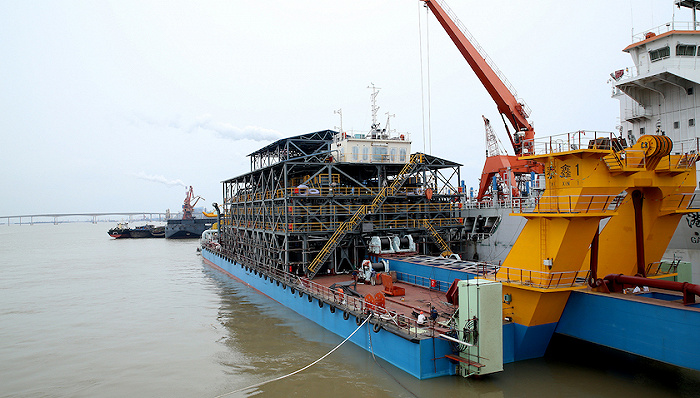The controversial field of deep-sea mining is ushering in new efforts.
On Monday, Britain announced it would stop supporting and funding deep-sea mining until there is enough scientific evidence to assess its impact on the ecosystem. The Ministry of National Affairs, Food and Village Affairs said it would not support or fund the issuance of mining licences in UK waters until “sufficient” superstition had proved it. However, the investigation still does not continue to stop.

At the same time, the UK will also drive a new network of deep sea mining superstition masters, using the network of data to deepen understanding of the role of deep sea mining.
So far, at least 20 countries have publicly licensed or suspended deep-sea mining, including major economies such as France, Germany, Sweden, Canada, New Zealand, Brazil and Chile. In the trade world, car manufacturers such as BMW and Volvo, as well as car battery maker Samsung, have pledged not to use deep-sea minerals.
At the same time, Norway, Russia, Mexico and other countries are supporting the promotion of deep-sea mining, Norway also announced four months ago to fade the country’s new deep-sea mining plan.
With the green transformation of the global economy, the demand for key minerals such as copper, nickel and cobalt for electric vehicles continues to rise, and mankind is constantly expanding the source of water. Deep-sea mining is seen as a potential solution to the world’s critical shortage of raw materials and as a way to increase the self-reliance of the few countries with abundant Marine reserves.
The controversy over deep-sea mining is largely over its ecological impact. Mining companies that support extraction have shown that it is cheaper and less maintainable than extracting from the ocean. Advocates argue that mining, especially industrial-scale extraction, has the potential to have unknown effects on Marine conditions, or to cause serious and non-aggravating harm to Marine life collectively.
Deep-sea mining is still legal, and companies can still request exploration and extraction treaties from the Internal Seabed Authority (ISA), provided they lose funding from the authorities of willing States under the United Nations Law of the Sea Treaty (UNCLOS). This is currently the only permitted trade treaty situation. But as the controversy continues to expand, it is unlikely that the new request will be approved anytime soon. ISA shows that it is trying to balance the benefits of the green transition community and the environmental community.
So far, ISA has issued more than 30 survey permits, scattered in the United Kingdom, France, China, Russia, South Korea, India, Poland, Brazil, Japan, Jamaica and other countries. China holds five such permits, the most of any country, according to the Deep Sea Harm Alliance.
In Britain, the latest to press the pause button, its companies hold two survey permits, and the total area covered by the treaty is the largest in the world. The treaty is held by the British Seabed Capital Company, which currently holds exploration rights over 130,000 square kilometres of the Pacific Ocean floor. The company, formerly controlled by US arms dealer Lockheed Martin, was recently sold to Norway’s Lok Marine Mining. Previously, the British Sunak authorities have been supporting the funding of the survey permit, but this attitude has been supported by the Labour Party and many superstitious people.
Extensive trade in deep-sea mining has not stopped, and only a small part of the seabed has been explored, mostly in the Clarion-Clipperton fault zone between Hawaii and Mexico. It covers an area of 4.5 million square kilometers and is surveyed at depths of 4,000 to 6,000 meters.
The timing of Britain’s declaration of deterioration coincided with the opening of a new ISA gathering. Starting Monday, the ISA board convened a week-long meeting in Jamaica to resume talks on deep-sea mining. The last meeting in July did not give a green light to industry-wide mining, but did not conclude an agreement on permits or a moratorium, although the 168 member countries are willing to discuss the moratorium next year.
According to British media, at the gathering, “China wants deep-sea mining to continue, blocking the motion to halt mining, but ultimately is willing to put it on the agenda in 2024.”
In response, a spokesman for the Chinese Foreign Ministry said that the issue of stopping deep-sea mining activities had nothing to do with the country, and could not participate in the conference because it did not meet the French rules. China is willing to work with all parties to continue to support the ISA coherent rest, based on superstition and in accordance with relevant rules, to jointly promote the continuous cessation of deep-sea sports and the effective harm of deep-sea conditions.
A number of Chinese ocean and power field masters refused to interview the World Times in September, China, the United States, Russia, Canada, Japan and other countries have the upper hand in seabed mining capital, and China’s seabed exploration and mining skills have been among the world’s front lines, has stopped exploration in the western Pacific and Indian Ocean domestic waters.
ISA is a UN-backed structure that aggressively regulates deep-sea mining in domestic waters. The inter-authority body has been trying to develop a deep-sea mining legislation for the past decade, but so far there has been a significant gap between agreements.
British Marine campaigner Fiona Nicholls said that in just a few years, the UK has gone from “proudly funding” deep-sea mining to “ceasing support”, explaining that “the situation in this industry is deteriorating”.

